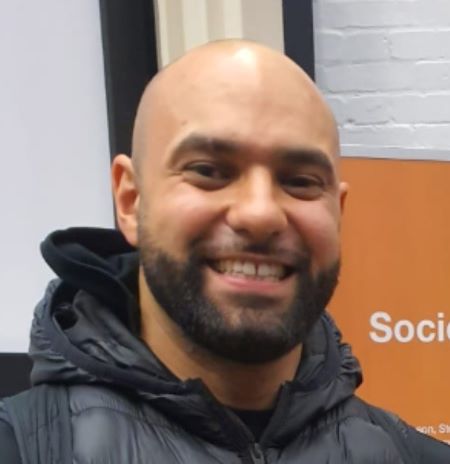Dr Yusef Bakkali grew up in the South London district of Brixton and knows a thing or two about 'Road Life'.
Now the whys and wherefores of this contemporary street culture are the keystone to his research as he takes his position as one of three new Legacy In Action Research Fellows at the Stephen Lawrence Research Centre.

Yusef does not fit into the average stereotype of a higher education academic. He wants his work at the centre in De Montfort University Leicester (DMU) to have a breadth to it that can bring about social and political change.
"Activism is about taking a stance. We do not necessarily want to go along with the current research canon. Our research needs to challenge and it needs to take risks," he says.
"I come from a background of relative poverty and I have formative experiences that have helped me to understand social justice and social injustice, and how these issues play out in complicated and often intimate ways during the course of people's lives.
"Academia could possibly be hostile to this kind of research, but we are bringing different perspectives..."
RELATED NEWS
How a trip to the barbers fuelled new research at DMU
Centuries of immigration to London's East End inspires latest research
Discover more about the Legacy in Action Fellows Programme
Yusef is unquestionably motivated by the Stephen Lawrence Research Centre's determination to leave a legacy that answers vital everyday questions about race, racism and social justice, now and in the future. And he is inspired by the fact that the Legacy In Action Research Fellows are required to base their explorations around the community.
He said: "I like the team we have here and I like the ethos of the Stephen Lawrence Research Centre and that someone like me feels very comfortable here.
"It is important to me to be working with people who have a lot of faith in what we are trying to do. We have to respect the legacy of the Lawrence family and our research has to have that activist dimension to it.
"I know a bit about gangs and stuff, and I realise that's an area which receives a lot of public and more recently scholarly attention, but that is not going to be the only element in my research. There are people who have different involvements in Road Life. People imagine young men banging guns and selling drugs. Maybe some people do that for part of their lives but there is far more to it than that. It is more nuanced, I think we need to understand life as being relational and dynamic in some ways.
"When you are not being valued at school or other institutions in life, or you are finding it difficult to get the support you need, as a working class, in many ways disadvantaged member of the community, the streets can sometimes become a resource.
"You have to be careful about the way you talk about Road Life. It is usually shorthand for young, poor and Black. But the street is used by all cultures. People use the streets to socialise and do business because they don't necessarily have the facilities in their communities to do it anywhere else.
"If you are poor and you have nowhere to go, who are you going to meet? Often it's going to be the person down the road in the same situation as you. All people want is to live their life and find opportunities."
Yusef also wants to look into the people who have different investments in minoritised youth/street cultures like road culture, be it the police or high street brands, corporations or the music industry.
COVID-19 and the restrictions of movement around the country are proving to be a challenge with Yusef's work.
There is an element of trust to be earned and opportunities to bring to young people that can't really happen on a Zoom call. So he is trying to find different ways of gathering the stories he wants to inform his research.
"I wanted the community to get involved so we can learn together. I hope we can help them learn new skills and give them a way of getting involved in academic practices they might not normally have the opportunity to. There are so many talented people out there who have important things to say and we want them to be heard. It is a difficult time but we'll find a way."
Posted on Thursday 29 October 2020